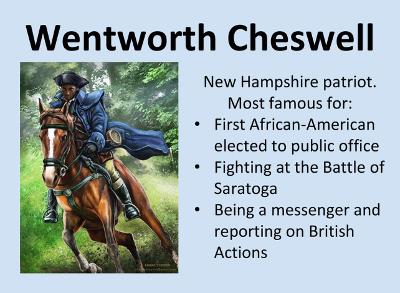
By Robin Smith
Americans celebrate Independence Day with little appreciation that–while a resolution was adopted to declare that independence by the Second Continental Congress was declared on July 4, 1776–the domination and violence of the British had commenced years earlier, and the Revolutionary War continued through 1783.
Let’s take a moment to learn about a few overlooked people who did extraordinary things.
Economic oppression overwhelmed the colonists. England’s new territories brought rich resources and new reasons to collect taxes for the Crown to help England pay its debt, beginning in 1763, and continuing for over a decade with no colonial representation or voice within the British government.
In 1770, citizens of Boston (population of 16,000 at the time) grew angry with 2,000 British troops roaming their streets enforcing the tax laws. A brawl escalated to a riot, called the Boston Massacre. These economic oppressions, met with growing resentment, moved the British government to disarm the colonists who grew more vocal in their protests.

Messengers, or 18th Century Freedom Riders on horseback, were critical to track British troop movements in the colonies when only word of mouth, letter writing, newspapers and pamphleteering were the means of communication to the public. The famed midnight ride of Paul Revere made for historic prose, as enjoyed by Henry Wadsworth Longfellow’s poem, Paul Revere’s Ride. But two riders, infrequently mentioned and overlooked in history, deserve attention!
Before the more famous ride in April 1775 from Boston to Concord and Lexington and the “shot heard around the world,” came the 66-mile wintry ride to New Hampshire in December 1774. Paul Revere carried information to neighbors in Portsmouth, New Hampshire where the grandson of a slave and son of a free black man, Wentworth Cheswell, rode as a member of the secret network of patriot riders mobilizing militia members to secure munitions and weapons before British troops arrived to seize them.
A few months later, in April 1775, despite years of colonial pleadings for representation amidst greater public protests, British troops marched from Boston to Concord, Massachusetts to seize a cache of weapons. Paul Revere was joined by William Dawes, Samuel Prescott and Israel Bissell sounding the alarm of the British government’s actions.

Following in the same role as these dispatched riders, Sybil Ludington–yes, a young woman–at the age of 16 years young, rode 40 miles throughout the night from her family’s farm in Kent, New York to Danbury, Connecticut almost two years later to the date of Revere’s ride to alert of British plans to destroy a military supply depot used by the Continental Army in the fight for independence.
In efforts to survive and obtain independence from the economic oppression by the British government under King George III, colonists demonstrated courage and determination. Many were overlooked, but historians are finally recognizing that Wentworth Cheswell and Sybil Ludington assisted the fearless citizenry who created America.
Is America perfect? No. Just a land where the brave lived and left their trace. May we follow their selfless example.
